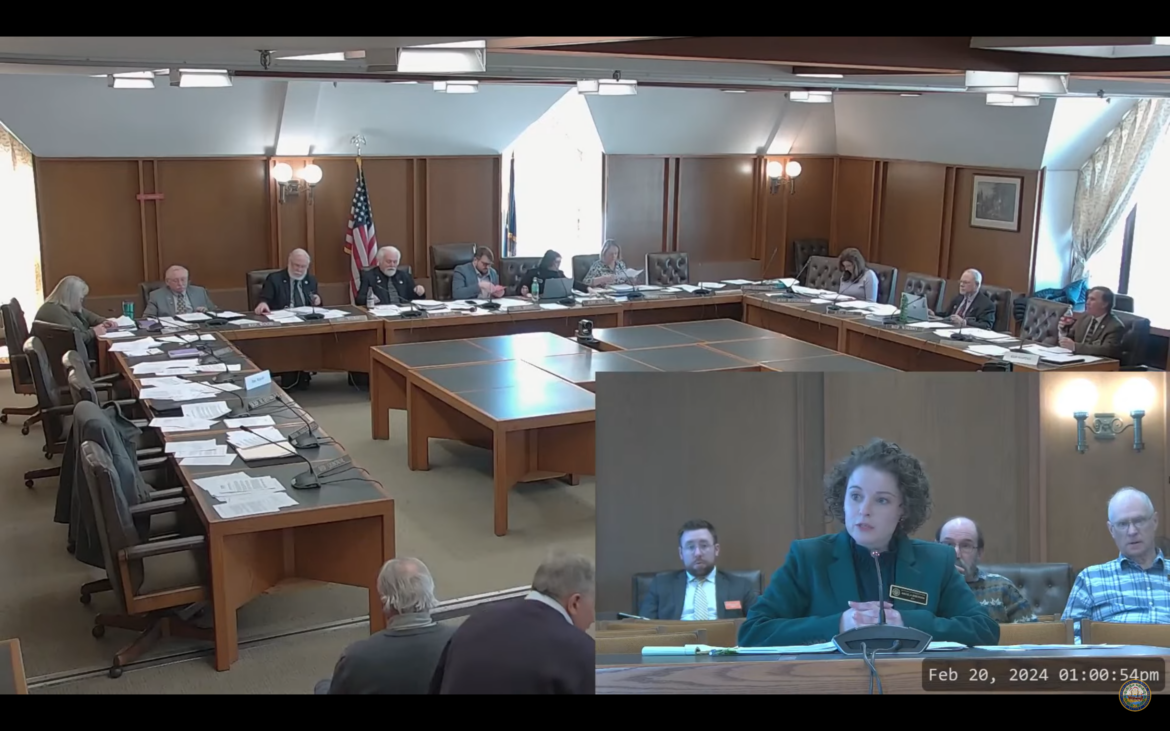By GARRY RAYNO, InDepthNH.org
CONCORD — Joining the Electronic Registration Information Center would address concerns about voter fraud and the accuracy of voting rolls, a House committee was told Tuesday.
But opponents worried joining the 25-state nonprofit would require the state to contact all potential eligible voters who are not registered at a substantial cost, and sharing the state’s voter and motor vehicle information with the organization could be risky.
Rep. Angela Brennan, D-Bow, the prime sponsor of House Bill 1557, said New Hampshire should join the organization that includes every other New England state, which would make checking for voter fraud much easier and provide election officials more up-to-date information for voter rolls.
She called the system the only reliable, sophisticated, and secure source out there at this time.
“Joining ERIC will allow for a clean checklist after every election,” Brennan told the Election Law Committee.
She provided the committee with letters from election officials around the country in states with ERIC, all touting the system and saying the more states that join the better the system.
“ERIC improves election integrity, voter confidence, accuracy of voter rolls and supports election officials.” Brennan said. “It’s time to join the only bipartisan, proven, reliable, secure election support system.”
But Secretary of State David Scanlan was opposed to the state joining the organization saying one requirement would have someone contact every potential voter who may be eligible but not registered. He said that would be enormously costly and time consuming when his office has a number of programs for voter outreach, but they would not satisfy ERIC’s requirements.
One of his chief concerns was the requirement to download the state’s voter database and its motor vehicle database as well, noting most of the states in the organization have motor/voter laws which allow automatic voter registration when you register a vehicle.
New Hampshire opted out of the 2002 law by instituting same-day voter registration.
He said when the state created its first electronic, centralized voter database, the concern was there would be a lot of private and confidential information in one place.
“We made a commitment at that time, we would not give away all this data that would be collected at the state level,” Scanlan said.
ERIC requires a regular data dump not just from the secretary of state, but from the Department of Motor Vehicles as well and that includes a lot of private confidential information, he said.
He would be more comfortable if it was used as a one-time match with other states, but ERIC did not retain the data.
“This would require a complete dump to a third-party entity, that is not the state of New Hampshire,” Scanlan said.
He said he would be happy to compare voting rolls with the other New England states to see if there is duplicate voting in two states.
Lucas Meyer, a voting rights activist, said if the state had the ERIC system it would debunk all the tales of voter fraud you hear and the legislature’s reaction which disenfranchises voters in the state.
He noted he grew up hearing about the buses of Massachusetts residents who came to New Hampshire to vote, but with ERIC there would be a report a couple of weeks later showing that was not the case, but a conspiracy theory instead.
“This is an opportunity for the first-in-the-nation state to show we do democracy best,” Meyer said. “New Hampshire can send a national message that we’re serious about election security and won’t cave to big lie conspiracy theorists.”
Several of the committee members raised the question why nine Republican states left the organization and have not returned, and were told there was some frustration over rules and some felt the push to register voters was more beneficial to the Democrats.
Rep. Robert Wherry, R-Hudson, questioned who gave the seed money and continues to fund the organization.
Meyer said the organization was begun through the Pew Trust, and Wherry said George Soros is a big supporter of that organization.
Soros was cited by some of the states leaving ERIC as the reason they were pulling out.
Meyer said that is perpetuating conspiracy theories.
The committee did not take immediate action on the bill.
Garry Rayno may be reached at garry.rayno@yahoo.com. Garry is InDepthNH.org’s State House bureau chief.






